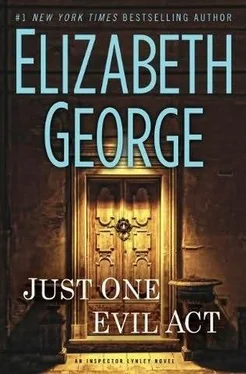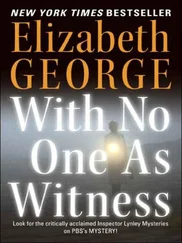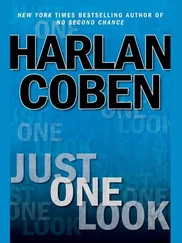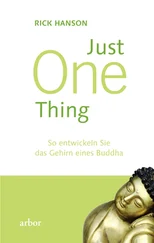There were cars and bicycles in the main car park, but there was no indication of a burial going on within the tall and silent walls of the cemetery on this day. The gates were open as always, and Salvatore entered them respectfully. He crossed himself at the feet of the guano- and weather-streaked bronze Jesus and Mary. A solemn mausoleum rose behind them forbiddingly, but the statues themselves bore faces at peace.
He paced along the gravel path, where the scent of flowers was a mixed perfume in the air and the sun cast brilliant light upon the marble slabs that topped the gravesites. Across the large quadrangle that he was walking through, tombstones rose as quiet witnesses to his progress towards Lorenzo Mura.
He was where Salvatore had concluded he would be: at the grave of Angelina Upman. He had thrown himself across the patch of dirt that would remain unmarked until her own marble slab covered the site of her burial. In the dry, warm dust that stood in place of this marker, Lorenzo Mura wept.
Salvatore allowed him this time to mourn, and he did not approach him for some minutes. The man’s agony was a terrible thing to behold, but Salvatore beheld it. It was a reminder to him of the price of love and he asked himself if he ever wanted to feel such attachment to a woman again.
Finally, when Mura’s worst weeping had passed, he went to the man. He bent and took his arm in a grip that was firm but was not fierce.
“ Venga, signore ,” he said to Lorenzo, and Lorenzo rose without protest or question or fight.
Salvatore walked him out of the cemetery and eased him into the car for the short drive to the questura .
LUCCA
TUSCANY
At first, she banged on the door like a bad actress in an even worse television drama. The first time, Ottavia Schwartz came to see if she was in danger or in urgent need of something, and she tried to explain, tried to bully her way past the policewoman, tried to beg, tried to flee. But Ottavia spoke no English, and even if she had done, it was clear she’d had her orders from Salvatore. As had everyone else, it seemed, for no one came in answer to her shouts once Ottavia had again secured the door against her.
All she needed was a mobile phone. She tried to make this understandable to Ottavia by mimicking, by saying telefonino when she finally remembered the word she’d heard used, by begging, by telling her that all she required was the ability to make one simple brief phone call . . . But she achieved nothing.
She was left with watching the time pass. She watched it on a wall clock. She saw it on the inexpensive watch she wore. With the passage of the deadline that Mitchell Corsico had given her, she tried to tell herself that the journalist had only been bluffing. But she knew the story he had was far too huge. It was page-one material and Mitchell wanted to reestablish his place on page one. Every tabloid reporter worth his salt wanted this: a by-line that melted the nerves of anyone whose activities suggested that a reputation-demolishing exposé was in order in the inimitable style of The Source . She’d known that when she’d got involved with the bloke.
So she paced. She had her cigarettes, and she smoked. Someone brought her a panino which she did not eat and a bottle of water which she did not drink. Once a female officer escorted her to the loo. And that was all.
Hours had passed by the time she was released. Salvatore was the one to fetch her. In those hours, much had happened. Lorenzo Mura had been brought to the questura , he had been questioned, he had been processed, and all the details had been taken care of.
“ Mi dispiace ,” Salvatore told her. His eyes were indescribably sad.
Barbara said, “Yeah. Me too,” and when he handed her her mobile phone, she said, “D’you mind if I . . . ?”
“ Vada, Barbara, vada ,” he told her.
He left her. He closed the door, but he didn’t lock it. She wondered if the room was wired, figured it was, and stepped out into the corridor. She rang Mitchell Corsico.
It was, of course, too late. Mitch said, “Sorry, Barb, but a bloke’s got to do what a bloke’s—”
She ended the call without listening to the rest. She trudged to Salvatore’s office. He was on the phone with someone called Piero, but when he saw Barbara, he rang off. He stood.
She said, throat tight, “I wish I could make you understand. I didn’t have a choice, see? Because of Hadiyyah. And now . . . things’re going to be worse because of what comes next and I still don’t have a choice. Not really. Not in the ways that are the most important. And you’re not going to understand the way it comes down, Salvatore. You’re going to think once again that I’m betraying you and I s’pose I will be, but what else is there to do? A story—a big one—is going to hit a major tabloid tomorrow morning. It’s going to be about Azhar, about me, about what was planned and who planned it, about hiring certain people to snatch Hadiyyah, about money exchanging hands and records altered and all of this is very bad. Your tabloids are going to pick up on it, and even if they don’t, DI Lynley is going to ring you and tell you the truth. And you see, I can’t let that happen although I’ve already failed to stop the tabloid story from being sent in.” She cleared her throat mightily and said through lips that felt as if they would bleed, “And I’m so sorry because you are one very decent bloke.”
Salvatore listened carefully. She could see the care he was taking to try to sort it all out. But it seemed to her that the only things he picked up on were names: Azhar and Hadiyyah. He spoke about Lorenzo Mura in reply, about Azhar, about Angelina. From this she reckoned he was telling her that Mura had confessed to what she herself had suspected: that Azhar was intended to drink that wine with the E. coli in it. She nodded as he said to her, “ Aveva ragione, Barbara Havers. Aveva proprio ragione .”
From this, she supposed he was telling her that she had been right all along. It certainly gave her not a moment’s pleasure.
LUCCA
TUSCANY
Barbara rose before half past five. She dressed and sat on the edge of her bed. She watched Hadiyyah sleeping, innocent of the knowledge of the change that now had to come to her life.
One did not orchestrate an international kidnapping and simply walk away from that kidnapping’s fallout. Within a few hours, Azhar was going to be free to return to London with his child, but once the full story came out, the hell that would follow would ruin him financially, personally, and professionally. Interpol would see to that. Italian prosecution would see to that. Extradition would see to that. A London investigation would see to that. And the Upman family would see to that.
What Barbara knew she had to do was to get to work on the problem and do it quickly. She had little enough time to see to things properly, and she needed Aldo Greco to help her.
She’d rung him late on the previous day. She told him what she needed. He’d already been informed of Lorenzo Mura’s arrest and of Azhar’s being in the clear of all charges related to the death of Angelina Upman, so when she suggested that it was imperative to little Hadiyyah’s mental and psychological state—“The kid’s been through the emotional wringer, eh?” was how she put it—that she be reunited with her father quickly, he was on board at once.
Unfortunately, he explained, he had to be in court in the morning. But he would ring Ispetorre Lo Bianco immediately and make the appropriate arrangements.
She said, “C’n you ask him . . . I’d like to . . . Well, he and I are a bit on the outs—”
Читать дальше












